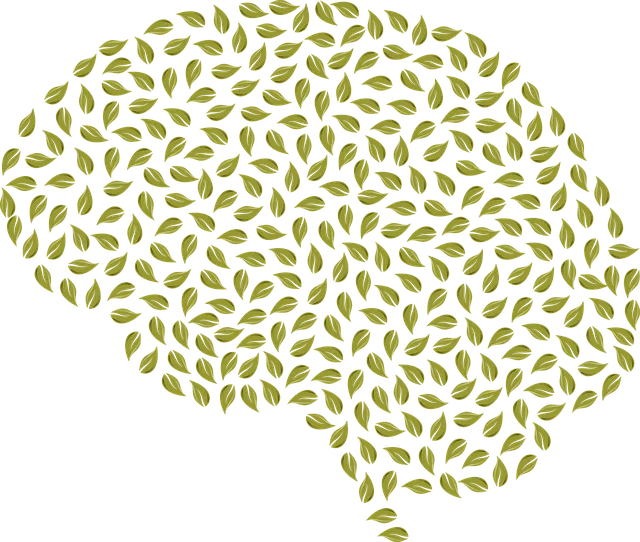Cultural competency is key to effective healthcare, especially in diverse communities like Northglenn, Colorado, where Kaiser Permanente caters to various populations. By prioritizing patients' cultural backgrounds and values, Kaiser's mental health services in Northglenn offer tailored care, improve outcomes, and build trust. Their comprehensive training programs equip providers with skills to navigate diverse patient contexts, fostering an inclusive environment. This initiative has led to enhanced patient satisfaction, improved outcomes, and better stress management techniques integrated into care plans, revolutionizing cultural divides in local mental healthcare.
Cultural competency training is an essential aspect of modern healthcare, ensuring providers can deliver empathetic, effective care to a diverse patient population. This article explores this critical topic, focusing on strategies implemented by industry leaders like Kaiser Permanente. We delve into their mental health services and cultural sensitivity programs, highlighting specific initiatives at the Northglenn facility. By examining real-world examples, we demonstrate the profound impact of culturally competent care.
- Understanding Cultural Competency in Healthcare: A Necessary Approach
- Kaiser Permanente's Mental Health Services and Cultural Sensitivity Training
- The Impact of Cultural Competent Care: A Case Study at Northglenn Facility
Understanding Cultural Competency in Healthcare: A Necessary Approach

Cultural competency is an essential aspect of healthcare that goes beyond treating symptoms and addressing medical needs. It involves understanding and appreciating the diverse cultural backgrounds, beliefs, and values of patients, especially in a diverse community like Northglenn, Colorado, where Kaiser Permanente serves a wide range of populations. This approach ensures that every patient receives care tailored to their unique cultural context, fostering trust, respect, and improved health outcomes.
In today’s world, where issues related to mental wellness and burnout prevention are increasingly recognized, cultural competency training is more crucial than ever. By incorporating education on self-care practices and mental health awareness, healthcare providers can better support patients from various ethnic, racial, and socioeconomic backgrounds. For instance, Kaiser Permanente’s initiatives in Northglenn have focused on providing culturally sensitive services, ensuring that communities like those in Northglenn, with their distinct cultural tapestry, receive holistic care that addresses not just physical health but also the nuances of mental wellness and self-care within their specific cultural frameworks.
Kaiser Permanente's Mental Health Services and Cultural Sensitivity Training

Kaiser Permanente’s Mental Health Services in Northglenn prioritize cultural sensitivity and competency as key components of patient care. Their comprehensive training programs equip healthcare providers with the tools to navigate diverse patient backgrounds, ensuring that every individual receives respectful and effective treatment. This approach recognizes that mental wellness and emotional healing processes can vary greatly across cultures, requiring tailored approaches.
By focusing on cultural sensitivity, Kaiser Permanente’s Northglenn facility promotes a safe and inclusive environment where patients feel heard and understood. The training includes guidance on how to conduct Mental Wellness Journaling Exercises, fostering open dialogue and self-reflection among patients from various cultural contexts. This holistic strategy not only enhances the quality of mental health services but also encourages a deeper connection between healthcare providers and their Northglenn community.
The Impact of Cultural Competent Care: A Case Study at Northglenn Facility

At the Northglenn facility managed by Kaiser Permanente, a comprehensive cultural competency training program has significantly transformed mental health care delivery. The initiative aimed to enhance the understanding and sensitivity of healthcare providers towards diverse cultural backgrounds, beliefs, and practices among patients, specifically in the context of Kaiser Permanente’s focus on holistic well-being, including mental health services. The impact has been profound, leading to improved patient satisfaction and outcomes.
This training fostered a more inclusive environment where providers could discuss and navigate sensitive topics related to emotional healing processes, especially within communities with diverse cultural sensitivities. By integrating Cultural Sensitivity in Mental Healthcare Practice, the facility witnessed a reduction in miscommunication and misunderstandings that often arise from cultural differences. Moreover, stress management techniques were incorporated into the care plans, enabling both patients and providers to cope more effectively with the challenges inherent in providing and receiving mental health services across cultural divides.
Cultural competency training in healthcare, as demonstrated by programs like Kaiser Permanente’s Mental Health Services and illustrated by the positive outcomes at Northglenn Facility, is an indispensable tool for providing equitable care. By fostering understanding and sensitivity to diverse cultural backgrounds, these initiatives ensure that patients from all communities receive respectful, effective treatment. As we navigate an increasingly diverse healthcare landscape, such training will be crucial in achieving better health outcomes for everyone.






